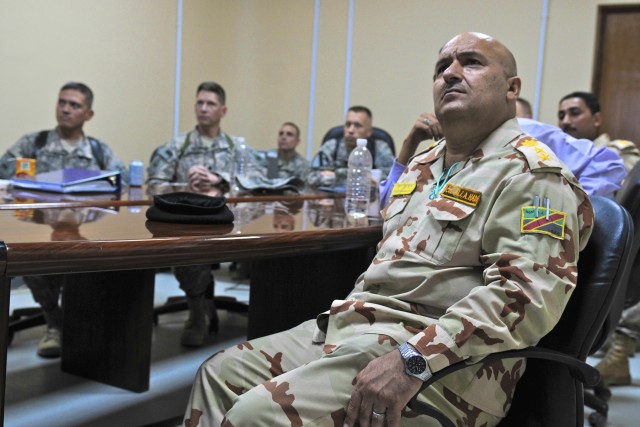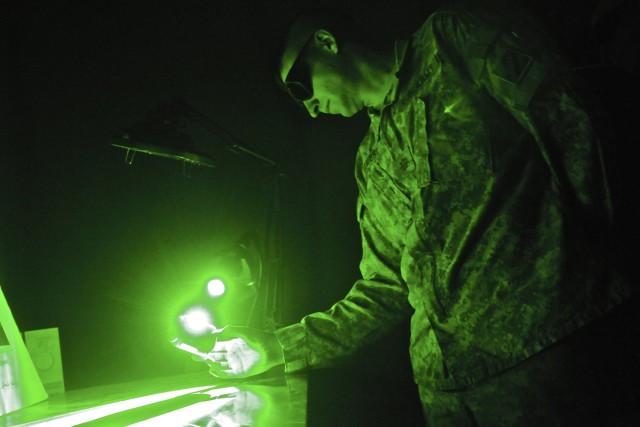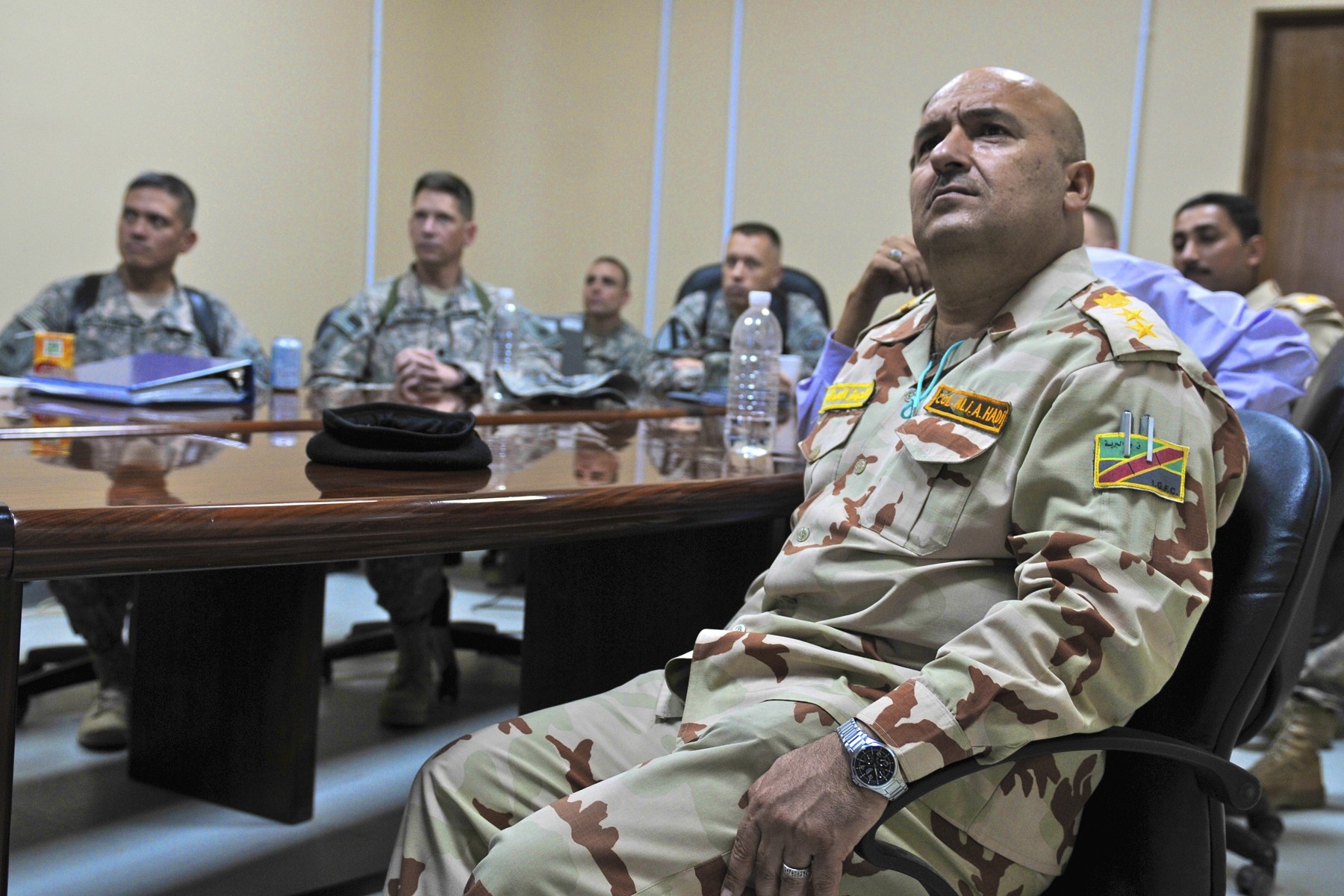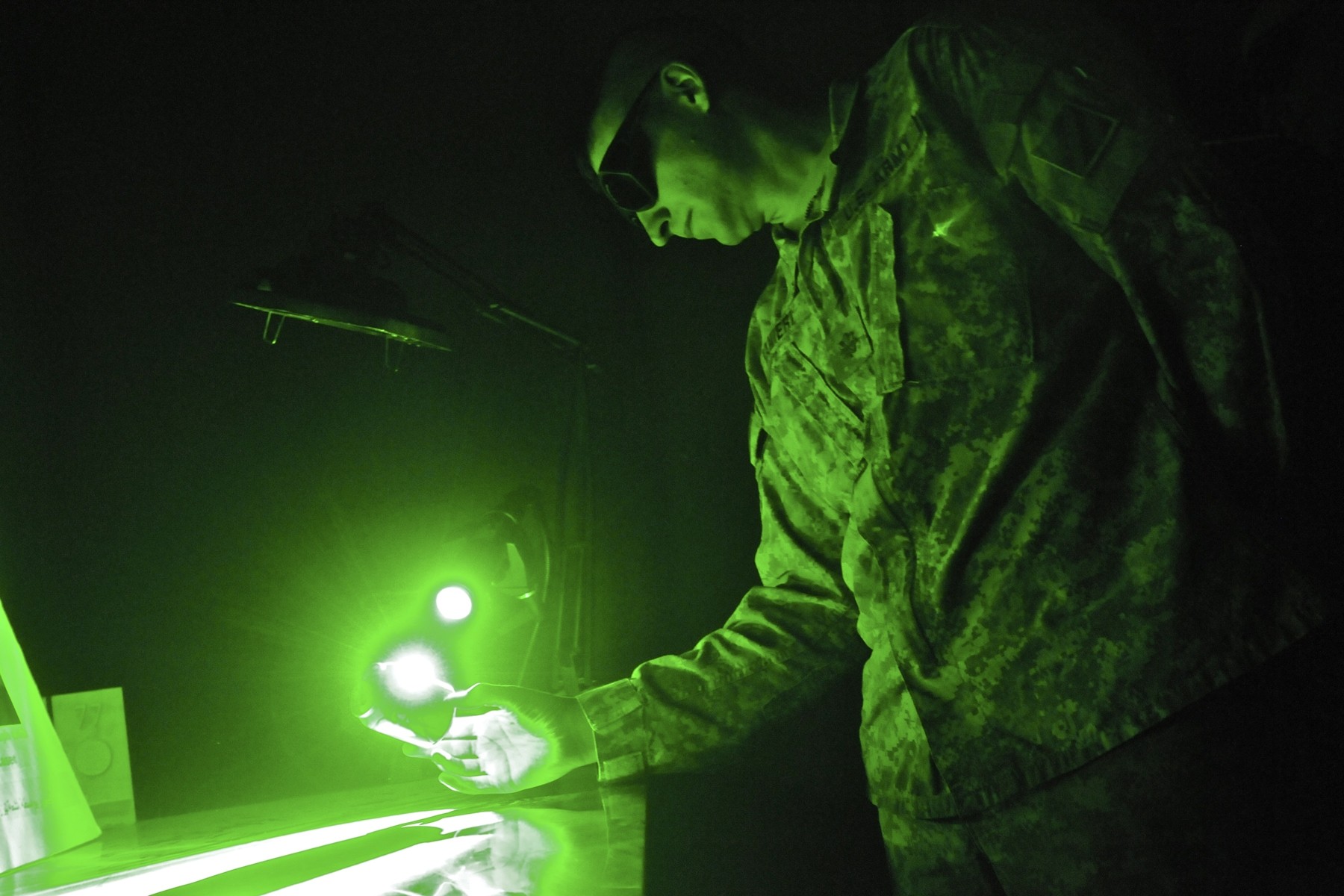BAGHDAD - Most would say Iraq's legal system is unstable at best. Decades of dictatorship and nine years of war have taken its toll on the governmental foundations of the country. Now that Iraq is becoming more stable, the leaders of Iraq are looking to create a legal system capable of handling the cases and crimes brought before it with fairness and equality. For the first time, Soldiers within the United States Division-Center met with Iraqi Army legal officers to discuss the way ahead on Forward Operating Base Liberty, June 5.
"The past regime created a lot of corrupt people. Now things are getting better," Col Ali Hadi, the Deputy Legal Officer of Iraqi Ground Forces Command.
To start off the day, the Soldiers from USD-C took the IA legal officers for a tour through Joint Expeditionary Forensic Facility 3. The IA currently does not use much forensic equipment during investigations, so the tour highlighted the advantages and opportunities available with the technology. The JEFF laboratory is one three such facilities operating across Iraq, and through the Iraqi Security Agreement, it is available for use by all Iraqi Security Forces wanting to submit evidence for examination.
"I was not aware these facilities were available for the Army," said Hadi. "There is rarely DNA evidence even used in court cases." Hadi also expressed concern over the IA soldiers' inexperience handling evidence. They are not trained on how to collect and preserve evidence for court hearings, because they have never had the technology to use it, Hadi said. But maybe with American support, we can train them to handle the evidence.
That was exactly the reaction Maj. Steve Ranieri, the Brigade Judge Advocate for 1st Advise and Assist Brigade, 3rd Infantry Division, hoped for.
"It is my hope that by showing these opportunities and procedures to the Iraqi officers here, today, we can start a dialogue with them to improve their own operations," he said. "Where they will go back to their units and use what they learned to change procedures."
Following the tour, the group sat in on training happening simultaneously for all the U.S. Army and Air Force prosecutors in Iraq.
Both Capt. Kevin Ley, an operational law attorney for USD-C and Maj. Ranieri said watching the training was more about the procedure than the actual content. We wanted to show them how we run our own training, said Capt. Ley. Although the actual topic of our training today didn't cross over as well because of the different laws and regulations, hopefully they will see how we are doing it and use it to improve their own training.
The goal, though, is not to force the Iraqi forces to duplicate American ways.
"We don't want to show the Iraqis what we are doing and say, 'Ok, now go do it exactly like we are,'" said Maj. Ranieri. "Our goal is to show them how we operate so that they can then take what parts work best and apply it to create a legal system that works for them."
Over the next few weeks and months, the USD-C Soldiers hope to continue building on their new partnership.
"Soon, we would like to get together with [our Iraqi counterparts] and do actual organized training, over topics that are applicable to their judicial system as well, so that they receive real, substantial benefits they can use in the future," said Maj. Ranieri.
When the Iraqi officers left, exchanging the handshakes and kisses customary within their culture, both sides expressed content with the day's events, and excitement over the weeks to come. While agreeing to work together may seem like a small step, in this reforming country where relationships and tradition are more influential than documents and signatures, a kiss on the cheek and a promise for the future is a greater victory than any other. As these American and Iraqi Soldiers continue and strengthen their partnership, the legal system can grow stronger, helping the newly reemerging country build a solid foundation for its future; a foundation being slowly built on independence and equality, one handshake at a time.




Social Sharing